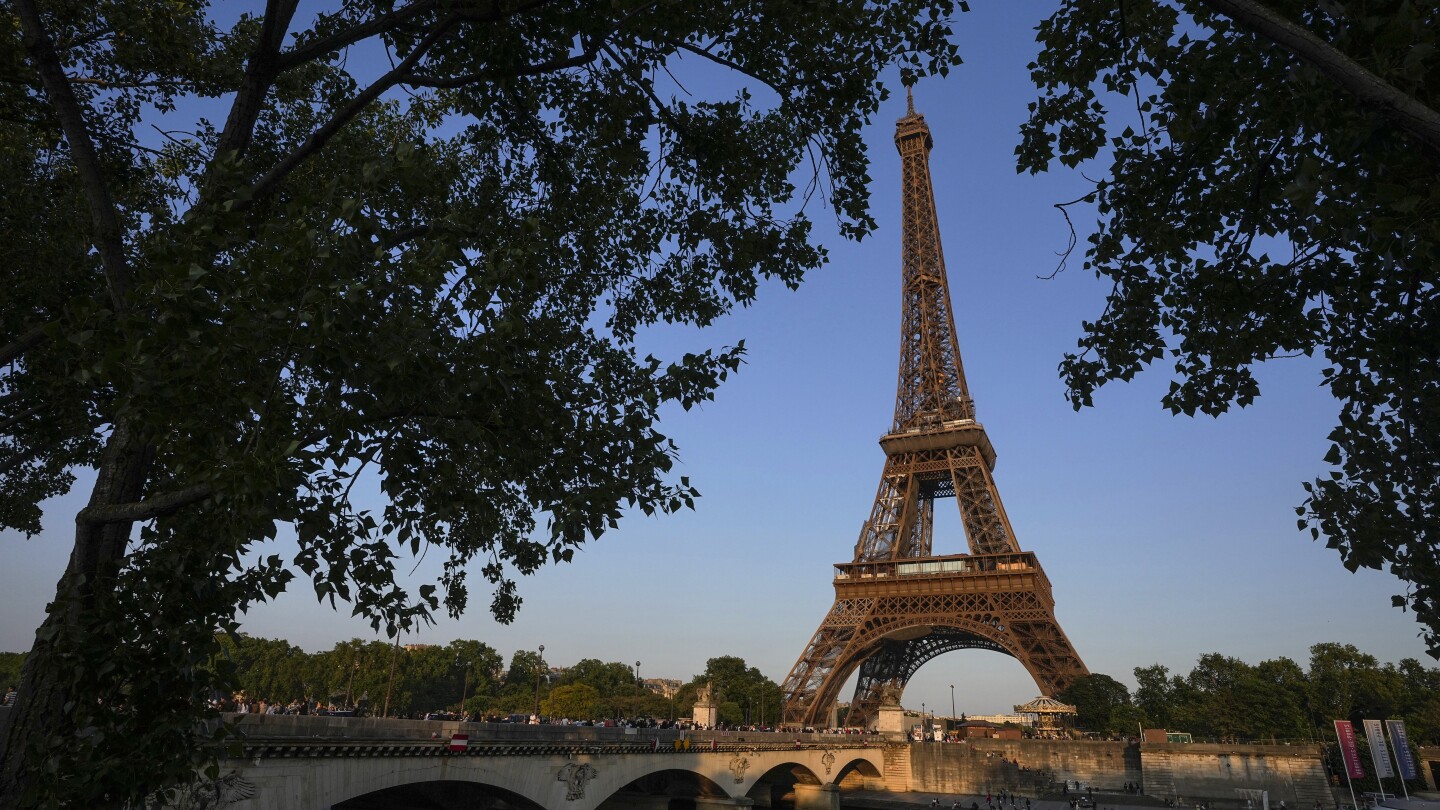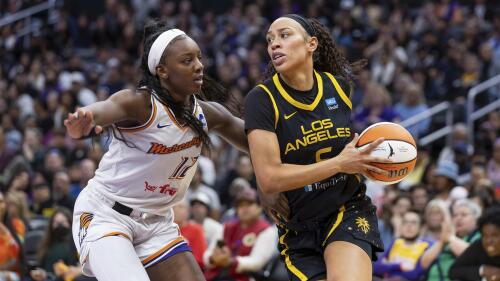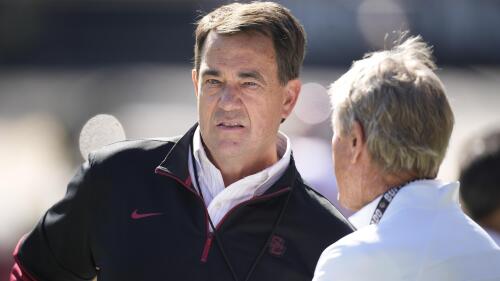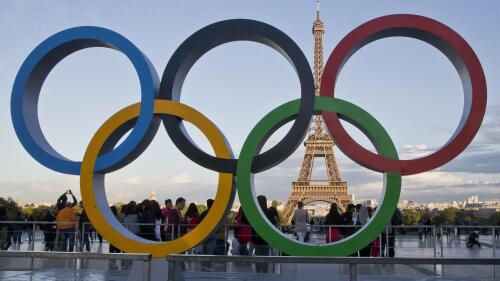PARIS (AP) — For the mayor of Paris, the city’s journey to next year’s Olympic Games included an epiphany born of brutality: the slaughter of 17 people by gunmen acting in the names of al-Qaida and the Islamic State group.
Anne Hidalgo says the 2015 attacks at a provocative satirical newspaper and a kosher Parisian supermarket were “truly fundamental” in steering her to the idea of bringing the Games back to the French capital for the first time since 1924. With the country outraged and hurting from the bloodshed, she saw the Olympics as an opportunity for France to rebound and heal.
“What really scared me at that moment was to hear young people, even children, explain that the terrorists were heroes and that Charlie was guilty of having pushed freedom of expression too far,” Hidalgo says, referring to Charlie Hebdo, the newspaper that repeatedly caricatured the Muslim Prophet Muhammad.
“I said to myself that things were really, really, really bad, and that we absolutely had to find something that also provides perspective, momentum, to young people, to the country. And the Games can be this unifying moment.”
Rarely has that need been more pressing for France, a country that has lurched from crisis to crisis since 2017, when Paris was chosen to host the Games. And seldom have the Olympics been as eagerly anticipated, coming after the global losses and separations caused by the COVID-19 pandemic, and against the backdrop of war in Ukraine.
The picture-postcard city aims to use its charms to wow audiences, starting with an unprecedented waterborne opening extravaganza on July 26, 2024.
But the context, in France and beyond, is tricky.
Rioting across France last month, triggered by the fatal police shooting of a teenager in the Paris suburbs, laid bare social, racial and political divides that undercut the image of a confident, can-do France that Games organizers want to project.
Before those six nights of violence, there were also sustained protests this year against President Emmanuel Macron’s pension reforms. Taken together, the unrest raised fears of more turbulence during the Games. Also concerning are investigations by French anti-corruption police into the awarding of a small number of Olympic contracts.
Organizers insist they remain on track to deliver safe and inclusive Games that also aim to be greener than ever, in part by using existing or temporary venues instead of building new ones.
With projected spending of 8.8 billion euros ($9.7 billion), the Games should cost considerably less than Tokyo’s $15.4 billion splurge on the pandemic-delayed 2021 Olympics.
Paris also needs dice to roll its way.
Its Games will be reliant on crowded public transport networks and on transport workers not seizing the golden opportunity to strike for better conditions.
Using Paris monuments as outdoor venues will offer striking visuals. But athletes and spectators could suffer if France endures another of its worsening heat waves.
And the planned opening ceremony for half a million spectators, most watching for free, along the River Seine has eye-popping security needs.
“The image of France is at stake,” chief Games organizer Tony Estanguet acknowledged in an exclusive Associated Press interview.
The Olympics have a lot riding on Paris, too.
With Ukrainian athletes saying they would rather stay away than face competitors from aggressor Russia and its military ally Belarus, the International Olympic Committee’s ideal of sport as a vector for human togetherness is under duress.
Hidalgo is among Ukraine’s international supporters pushing for a ban on Russian athletes. But that would go against the grain for Thomas Bach, the IOC president whose fencing career was hurt by a boycott of the 1980 Moscow Games after the Soviet Union’s invasion of Afghanistan. Bach could not defend his Olympic team title with West Germany.
The IOC president has sought to tiptoe through the geopolitical minefield with a pathway that could see Russians and Belarusians qualify as neutral competitors.
But that could sour the mood in Paris.
“Were Paris to pretend that nothing is happening, lots of countries, lots of Europeans, have said they will boycott,” Hidalgo warns. “There is still one year to go. I really hope that Ukraine wins. I really hope the war will be behind us.”
For global TV audiences, the marriage of sports and Parisian landmarks promises compelling viewing: Beach volleyball played by the Eiffel Tower. Skateboarding, breakdancing, BMX freestyle and three-on-three basketball unfolding at Place de la Concorde, where France’s last king, Louis XVI, was beheaded in 1793. Horse riding at the former royal palace in Versailles. The list goes on.
“They will not be Games that we’re used to seeing,” Estanguet promised.
The first post-pandemic Olympics also mark the return of full-size crowds. Nearly 70% of the 10 million tickets flew off shelves in the two first rounds of sales.
“Knowing that everyone from around the world is flocking to one place to watch sport, it will be so cool to have that back,” says British rower Helen Glover, a two-time Olympic champion aiming for her fourth Summer Games.
Paris is also the test bed for a new IOC model of Olympic hosting.
After decades of excess in other host cities, which sank billions into venues that quickly outlived their usefulness, the Games now aim to adapt better to their hosts, and less the other way around. The only competition venues that Paris has purpose-built are an aquatics center and a climbing facility. Both are in disadvantaged northern outskirts that lack sports facilities.
The IOC hopes Paris’ experience will revive appetites in other cities to bid for future Olympics. Rome, Hamburg, Germany, and Budapest, Hungary, all dropped out when Paris was bidding, leaving the committee embarrassingly short of suitors. Paris only wanted 2024. The other remaining bidder, Los Angeles, agreed to host in 2028.
The 10,500 Olympians — for the first time evenly split between men and women — now have one year left to ready themselves for 18 days of competition.
And France has a year to conjure up a celebration that would complete its journey since 2015 and emphatically respond to the extremism that sought to silence Charlie Hebdo. Paris was also attacked again later that year with follow-up assaults on the Bataclan concert hall and other sites that killed another 130 people.
“For us, the Games have been a way of looking ahead and also of sending a message, I think, to the whole world that, ‘Yes, we were attacked. Yes, we suffered perhaps some of the cruelest things,’” says Deputy Mayor Pierre Rabadan, in charge of Olympic planning at City Hall.
“But voilà,” he adds. “We’re not giving up — not in our way of thinking, nor in the way that we are and nor in welcoming the world.”
___
More AP coverage of the Paris Olympics: https://apnews.com/hub/2024-paris-olympic-games and https://twitter.com/AP_Sports




